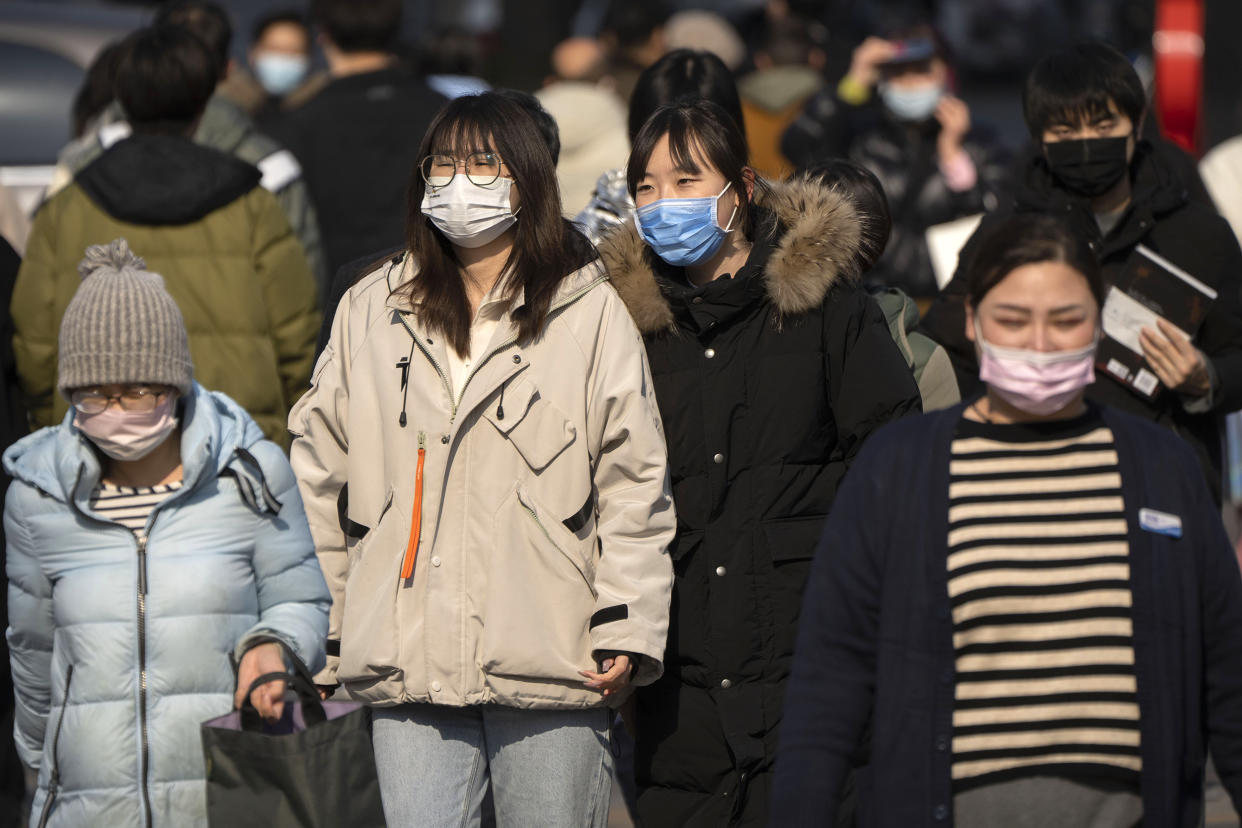No new variants emerged from China’s Covid outbreak, study finds
HONG KONG — Analysis of Covid-19 cases in Beijing suggests that no new variants emerged from China’s recent outbreak, according to a study published Wednesday.
Facing rare mass unrest after nearly three years of strict “zero-Covid” policies, the Chinese government dropped most restrictions on Dec. 7. The sudden change unleashed the coronavirus over the winter on a population of 1.4 billion people who had barely been exposed to it, raising fears that the outbreak could produce a new variant of concern and leading dozens of countries, including the United States, to impose testing and other curbs on travelers from China.
But the Chinese-funded study, which was published in The Lancet, found that of 413 sampled infections in Beijing, all belonged to existing Covid variants. The most common were omicron subvariants BA.5.2 and BF.7, which together accounted for more than 90% of local infections.
The samples were randomly selected for genomic sequencing from a larger group of 2,881 high-quality samples collected in Beijing from Nov. 14 to Dec. 20, 2022.
George Gao, the study’s lead author and a professor at the Institute of Microbiology in the Chinese Academy of Sciences, said it was important to investigate whether any new variants had emerged during China’s outbreak given the impact that others like delta and omicron have had on the course of the pandemic.
“Our analysis suggests two known omicron subvariants — rather than any new variants — have chiefly been responsible for the current surge in Beijing, and likely China as a whole,” Gao, the former director of the Chinese Center for Disease Control and Prevention, said in a news release.
“However, with ongoing large-scale circulation of Covid-19 in China, it is important we continue to monitor the situation closely so that any new variants that might emerge are found as early as possible.”
Although the study covered a short period early in the outbreak and the sampling was limited to Beijing, its findings are in line with reports from Italy and other countries that have been testing arrivals from China for Covid and sequencing the results, said Tongai Maponga, a researcher in the Division of Medical Virology at the University of Stellenbosch in South Africa.
“Whatever they are detecting in travelers originating from China is the same as what we already know to be in circulation elsewhere,” said Maponga, who was not involved in the Beijing study.
The study was also limited by the fact that China ended mandatory large-scale testing in December, making it difficult to know the total number of cases in the outbreak and thus what percentage of total cases the samples represent.
After being kept at bay for most of the pandemic, the virus appears to have torn through China much faster than in many other countries, starting to pick up speed last fall even before the Covid restrictions were lifted. Beijing and other major cities experienced some of the earliest outbreaks.
Zeng Guang, former chief epidemiologist at the Chinese CDC, said in late December that more than 80% of Beijing residents had most likely contracted the virus. A study published in January by researchers at the University of Hong Kong said it could be more than 92% by Jan. 31.

Chinese officials say a feared surge during the Lunar New Year holiday period, when hundreds of millions of people travel to their hometowns to visit family and which began in mid-January, did not materialize. But the outbreak has still been a huge source of anxiety for Chinese who had been taught to fear Covid-19 and devastating for those who lost loved ones to the disease.
Global fears that a new variant might emerge were compounded by what the World Health Organization and others said was a lack of data from China about its outbreak. China has defended its data and criticized the travel measures as unscientific and discriminatory.
Chinese officials have released more data in recent weeks, saying hospitals have recorded about 80,000 Covid-related deaths since early December. Many experts say the true number is far higher, with the British forecaster Airfinity estimating 608,000 deaths from Dec. 1 to Jan. 17.
The Chinese CDC most recently reported 3,278 Covid-related deaths nationwide from Jan. 27 to Feb. 2, about half the number from the week before. It says daily Covid infections peaked at 6.94 million on Dec. 22 and have since fallen to about 24,000 as of Jan. 30.
Maponga pointed out that a new variant of concern could still emerge anywhere in the world, underlining the need for continued testing, genomic surveillance and transparent sharing of data.
“As long as it continues circulating, infecting people as well as animals, the virus will always be developing mutations because that is the nature of viruses,” he said.
